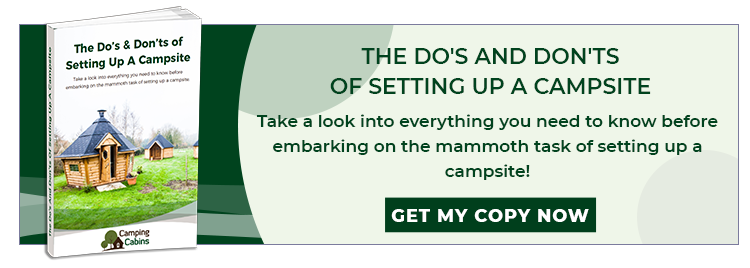
Before you even consider opening a new campsite, it’s important you’ve looked at your potential new business from every angle. A business plan for campsite management will help you work out whether this is a viable option for you, how you can finance it and how to go about setting up the practical side of things.
If you’re uncertain how to begin, here’s a handy guide to help you draw up your own campsite business plan.
Who Is Suited To Campsite Management?
An obvious place to start, but are you sure this is the right business for you? In order to successfully run a campsite, you need certain skills, most importantly, customer service. You’ll also need a good business management brain for tackling finances and tax returns, as well as knowing everything there is to know about camping.
Planning Your Time
If you decide to go ahead, it's worth getting a feel for the timescale. Make a list of the tasks you'll need to complete and set dates by which each needs to be completed. While it's always good to know how long various things will take you also need to remain flexible, as there will almost always be holdups and unexpected problems on the way.
Financing Your Site
Once you’ve found your land, you need to think about financing it. You could take out a loan to purchase your first site or add to the site you have by purchasing adjacent plots. You might also want to consider upgrading your site by adding quality timber camping cabins, for those who don’t want to be under canvas. We can offer lease rental and hire purchase options to ensure you get the repayment plan which fits in with your current financial situation, so see this page for more information (https://www.campingcabins.co.uk/finance/).
What Does Day To Day Management Involve?
Knowing what’s involved on a day to day basis lets you work out how much you can do for yourself and how many more people you might need to employ before you open. A day in the life of a campsite manager could involve checking guests in and out, cleaning toilets and shower units, emptying trash cans, complaint handling and seasonal duties such as clearing snow in the winter or tidying up autumn leaves.
Is There Room To Grow?
You might start off small, but it’s always worth planning for the future and possible expansion. Look at how you might budget for this and set realistic goals when it comes to income and expenses. See if there is land close by which could also be purchased if things take off, but make sure you have a slush fund set aside for the unforeseen, such as flash floods and storm damage.








